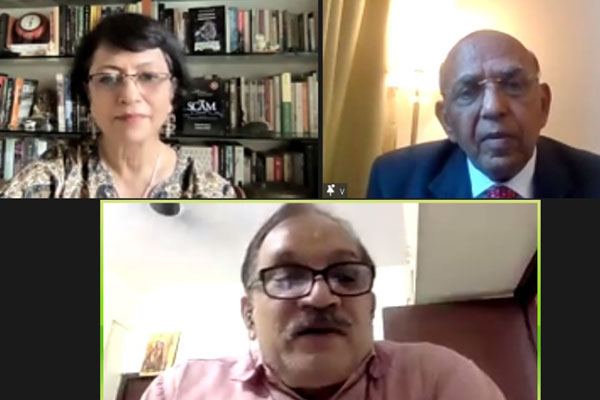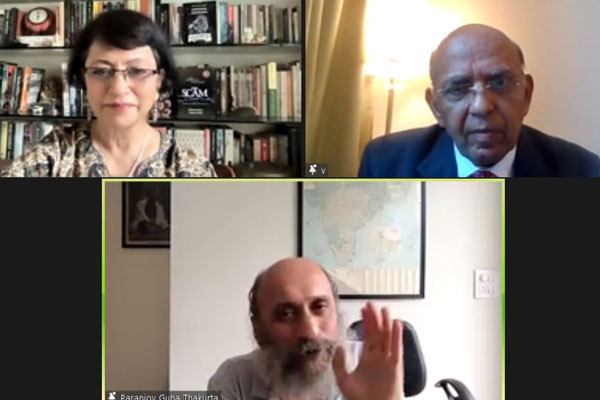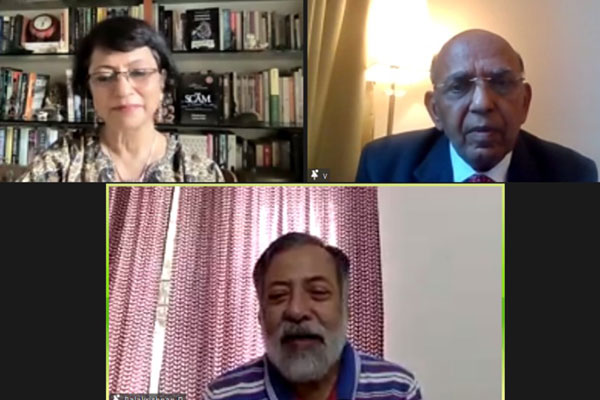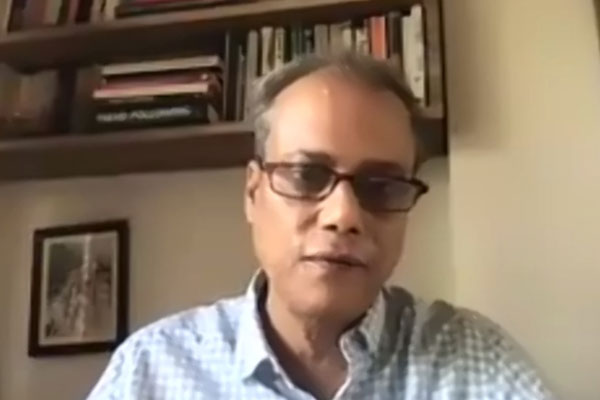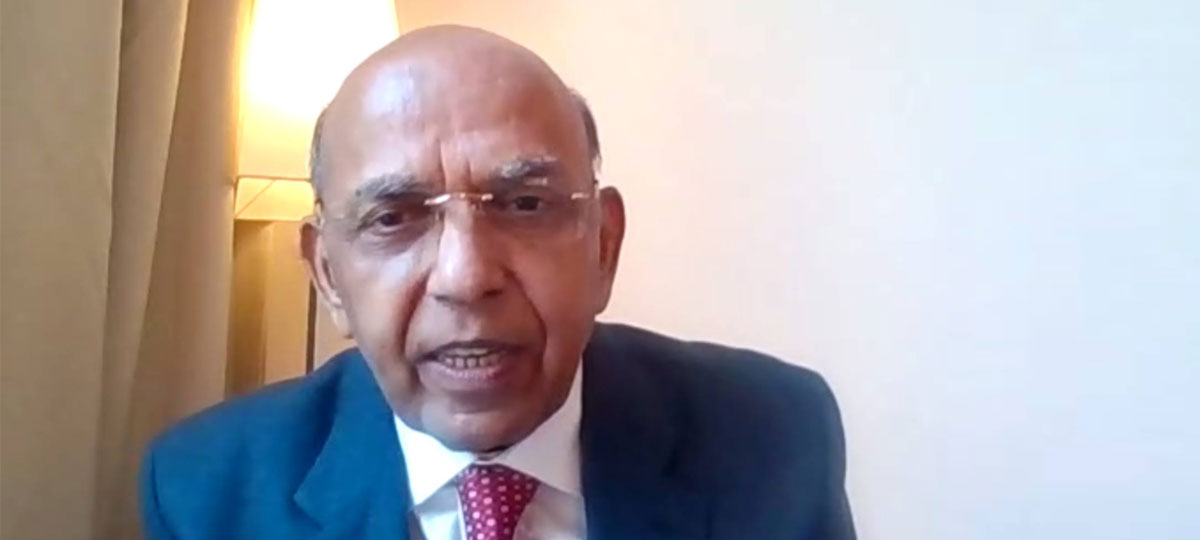
“In the securities market investors are likely to be victims of the system again and again because that is flawed. In laws such as the SEBI Act, they have no rights to fight a suit against him, they cannot go to a district court. They can file an appeal in the SAT against a SEBI order, which is located only at Mumbai, which in itself is very wrong. And the SAT orders are appealable in the Supreme Court only. So in effect what we have done in securities market by and large is bar investors from taking judicial recourse at all,” says Virendra Jain, founder of Midas Touch Investor’s Association. On 31st July, his 75th birthday, Moneylife Foundation had organised a webinar to felicitate him for over 30 years of selfless contribution to the cause of savers and investors.
“Another huge thing is, that there is no accountability of any regulator or anyone for that matter in the securities market. I think what we need is a holistic view of the entire thing, individual problems are just manifestations of a bigger problem. Unless the bigger problems are tackled and solved, this will keep happening. Moneylife, and people like me will make a lifelong effort and make a dent somewhere, in a sea of misery floating away," Mr Jain says.
Talking about what drove him to take up investor issues through the legal route, he says, “I will do this with whatever I have, not what I should. That was my thought throughout, that I will do this with my resources. Otherwise, I realised, that your focus and energy would be spent only in trying to secure resources.”
The event began with an introduction by Debashis Basu, founder trustee of Moneylife Foundation, of Mr Jain and his stupendous work for investors. This was then followed by an hour-long conversation between Sucheta Dalal, founder trustee of Moneylife Foundation and Mr Jain, on his work, achievements and struggle to get justice for investors.
One of the most memorable fights that Mr Jain and Midas Touch successfully fought for investors was that against Canstar, as a highly aggressive and popular mutual fund scheme floated by Canbank Mutual Fund in the 1990s.
Around this time, many public sector banks (PSBs) and insurance companies were allowed to float the first set of mutual fund schemes outside the Unit Trust of India (UTI). All of them made a debut as subsidiaries of public sector entities and attracted investors due to their pedigree and by offering 'assured returns' that were higher than bank fixed deposits. Canstar had raised around Rs800 crore but lost over Rs100 crore in the 1992 scam and several of its officials were accused of colluding with the scamsters and it seemed set to ditch investors.
Then, a path-breaking litigation by Midas Touch not only helped Canstar investors get their money back, but the judgement from this case also prevented all other mutual funds from ditching investors as well.
The case "had wide implications for the mutual fund industry, which was crooked, dominated by public sector banks and insurance companies, and was trying to wriggle out of the 'assured returns' on the basis of which all schemes had raised money," says Ms Dalal, while starting her hour long discussion with Mr Jain.
“It was very interesting. This was Midas’ first public interest litigation (PIL) and in those days PILs were very rare. There were no PILs on the securities market before then. On the first day of our PIL, after the first hour of hearing, the Court issued a notice to Canara Bank. That was very disappointing, as we had made eight other entities party to the case and the Court jumping to the conclusion that Canara Bank was solely responsible was very disappointing. Eventually, I think Canara Bank consulted with the then finance minister, PC Chidambaram and realised that they had no option but to pay," Mr Jain says when explaining his fight for the investors of Canstar.
Ms Dalal remarked that was this a "landmark case that eventually made SEBI realise that dubious practice of assured return schemes should be stopped, and soon there was a decline of public sector mutual funds as a concept after that."
"Although the industry was small then, the money you (Mr Jain) won back for them was huge, and it is important for people to remember that it needs just one man or organisation to put up a fight," she added.
Mr Jain is perhaps most well-known for his effort to have SEBI and the ministry of corporate affairs (MCA), recognise the concept of ‘vanishing companies’ – those that raised public money in cahoots with investment bankers, banks and brokers and vanished with the loot.
When Ms Dalal brought up the topic of 'vanishing companies' and asked Mr Jain to explain the whole process of his long-fought battle, he says, “We very meticulously followed up this issue with SEBI, MCA and even ministers in the government. They were all very aware of vanishing companies and I was very surprised that nothing was happening. What was the reason that I had to fight them? Why were all of them so resistant to change, and to do anything at all about the vanishing companies? Where was this vested interest coming from? Frankly, even today I don’t know. With all their powers, why couldn’t SEBI attach the assets of such companies when they disappeared, to pay investors who were left in the lurch? It’s very difficult to comprehend."
Ms Dalal also went on to point out that the result of Mr Jain's another battle culminated in an extraordinary order from the Allahabad High Court. "The Allahabad High Court orders were pathbreaking...there was this coordination and monitoring committee (CMC) set up and there were seven task forces. I mean, it was an unbelievable achievement. But I also feel a little disappointed that every regulator seems to have worked hard, to not make it happen," she says.
“The order was fantastic, but they simply did not follow that order at all. When you see the order, even if it was implemented today…there are so many things in it, other than vanishing companies, it could have been great but nothing was done. It was simply washed away,” Mr Jain says while commenting on the lack of action on the part of regulators and the court appointed committee.
Ms Dalal went to ask Mr Jain about the unusual choice of name for his investors association, "Why the unusual name, Midas Touch? If anything, you are helping people recover money that they have lost, not to earn money!"
To which, Mr Jain responded, “I started a company as Midas Finance, which did not take off. So, when we were thinking of starting an association, I thought this is a good name, probably a catchy name. So that was that, nothing more to it, honestly!”
Talking about the Midas Touch Investor Helpline, Ms Dalal says, "I remember the effort we put in, to ensure Midas Touch met SEBI's accreditation criteria. The Kanpur seminar that we did, which was ironically supported by NSE, helped. So, eventually this accreditation helped you interact with the regulator and helped you get initial funding from Investor Education and Protection Fund (IEPF) of the MCA to set up the Midas Touch Investor Helpline. That was so important. Even Moneylife Foundation is unable to do what you did, because it is too late. Yet you handled so many investor grievances successfully."
According to Mr Jain when Midas Touch started the Helpline, everyone has said it would be a non-starter and was bound to fail. “That gave me the courage,” he says, adding, “From day one, it was my objective for that project that we have zero tolerance policy. So, we started with that high ambition, and almost made a significant impact. It was amazing to see that companies were responding, realising that these people were serious.”
Before it was terminated, the Helpline successfully helped resolve 10,578 investor grievances at absolutely no cost to the investor.
"Isn't it such a tragedy that in India, good work is punished? Now we have the IEPF which is controlled by bureaucrats, who have not been able to replicate one fitth of the work that Mr Jain has done," remarked Ms Dalal.
The event was attended by many well-known journalists such as Andy Mukherjee and Paranjoy Guha Thakurta, and others such as Kaza Sudhakar, former chief general manager at RBI, R Balakrishnan, and activists Abhay Datar and Subhash Agrawal, who had all joined to honor Mr Jain and also wish him a happy 75th birthday.
In her closing comments, Ms Dalal expressed hope saying, "Let's not end on a pessimistic note. The reason that we had Mr Jain here was to let people understand the challenges. We hope that when they do understand the challenges, they will probably be more supportive and understand the need to put up the kind of fight that Mr Jain has. Hopefully, he has inspired a few others to go to court, take a chance and study any issue that they feel strongly about. Because you never know, there may be a tremendous victory at the end of it."
The session saw attendance of over 80 people on Zoom and many others watched it live on YouTube.


